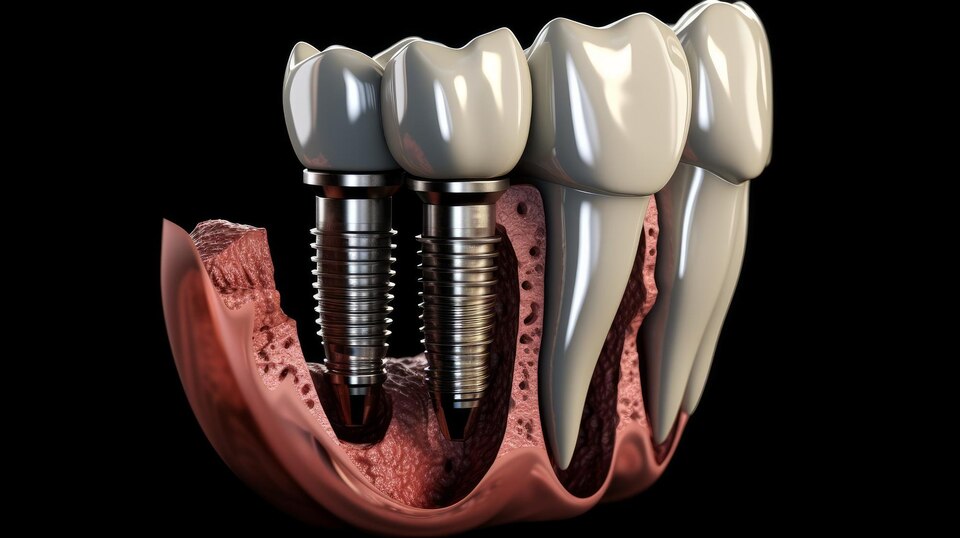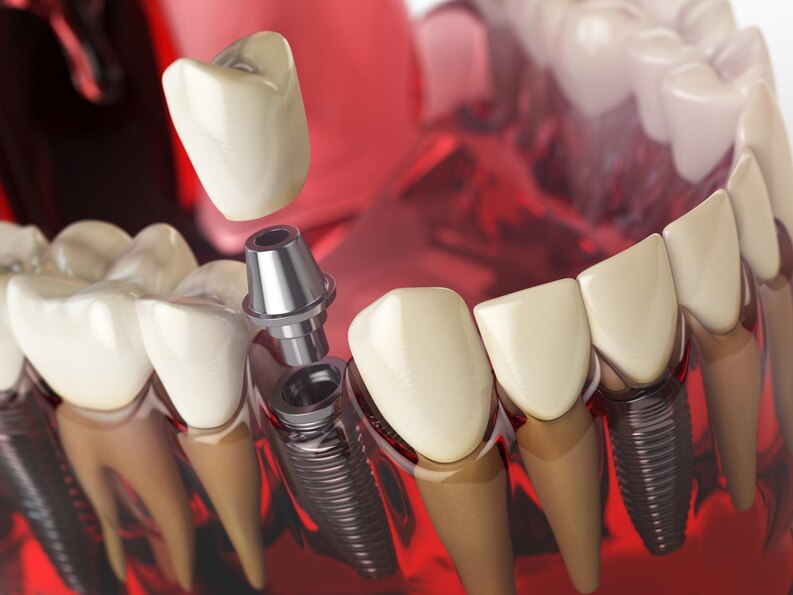Multiple Teeth Replacement
Options to replace multiple missing teeth include an implant-supported bridge which uses implants as anchors, a traditional bridge attached to crowns or an implant-supported denture where a denture attaches to implants for a secure, custom fit.

Types of Multiple Teeth Replacement Options
Dental Implants: The Gold Standard
When it comes to replacing multiple missing teeth, dental implants stand out as the gold standard. These small titanium posts are surgically placed into the jawbone, providing a stable foundation for artificial teeth. Dental implants offer several advantages:
- Durability: Dental implants can last a lifetime with proper care, making them a long-term solution.
- Natural Appearance: They closely resemble natural teeth in both look and function, restoring your smile seamlessly.
- Preserve Jawbone: Implants stimulate the jawbone, preventing bone loss that often occurs with tooth loss.
Dental Bridges: A Traditional Approach
Dental bridges have been a trusted solution for multiple teeth replacement for years. A bridge consists of one or more artificial teeth anchored to adjacent natural teeth or dental implants. Key benefits include:
- Quick Procedure: Dental bridges can be placed relatively quickly, restoring your smile in a shorter time frame.
- Cost-Effective: Compared to dental implants, bridges tend to be more budget-friendly.
Removable Dentures: An Alternative Solution
Removable dentures are another option for replacing multiple missing teeth. These prosthetic devices can be taken out for cleaning and sleeping. They are a suitable choice for those seeking a non-invasive solution with these advantages:
- Affordability: Dentures are typically the most cost-effective option for multiple teeth replacement.
- Versatility: They can replace a full arch of teeth, making them a versatile choice for extensive tooth loss.

Benefits of Multiple Teeth Replacement
Replacing multiple missing teeth offers various advantages, including:
- Improved Chewing: Enjoy your favorite foods without difficulty.
- Enhanced Appearance: Regain your confidence with a complete smile.
- Better Speech: Fill the gaps to speak clearly and confidently.
- Preserve Oral Health: Prevent further dental issues caused by gaps and misalignment.
Understanding the Procedure: Step-by-Step Process
Initial Consultation and Dental Evaluation
The process begins with a consultation where your dentist evaluates your oral health and discusses your options. X-rays and scans may be taken to assess bone density.
Treatment Planning and Customization
Once the evaluation is complete, a personalized treatment plan is created. This plan considers your unique needs, including the number of missing teeth and the chosen replacement method.
Surgical Placement or Preparation of Prosthetics
For dental implants, the next step involves surgical placement. If you opt for bridges or dentures, preparations are made to anchor them securely.
Recovery and Post-Operative Care
Following the procedure, you’ll need time to heal and adjust. Your dentist will provide post-operative care instructions to ensure a smooth recovery.
Potential Risks and Complications
While the benefits of multiple teeth replacement are substantial, it’s essential to be aware of potential risks and complications. These can include infection, implant failure, or discomfort during the adjustment period. However, with proper care and regular dental check-ups, these risks can be minimized.
Cost for Multiple Teeth Replacement
The cost of multiple teeth replacement can vary widely depending on factors such as the chosen method, the number of teeth to be replaced, and your location. Generally, dental implants tend to be on the higher end of the cost spectrum due to their durability and natural appearance. Dental bridges and removable dentures are often more budget-friendly options.
FAQ
Minimal pain, typically managed with anesthesia and over-the-counter pain relievers.
Varies widely based on factors, but averages range from a few hundred to several thousand dollars.
Depends on individual needs; implants offer durability and stability, while dentures are more affordable and removable.
Yes, but the timeline varies; implants may take months, bridges allow normal eating sooner, and dentures may require an adjustment period.
Implants: Several months for full integration; bridges: quick recovery; dentures: an adjustment period.